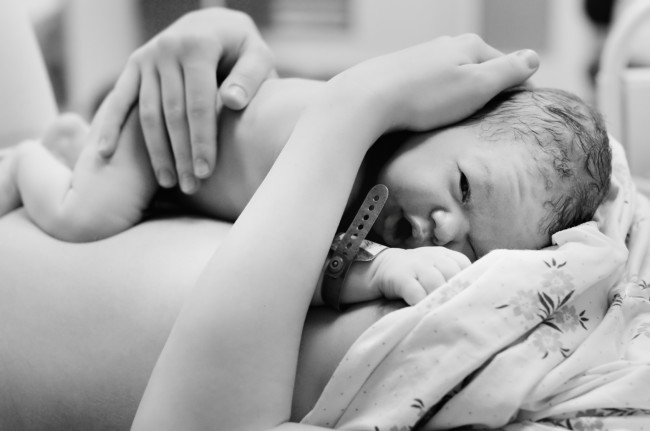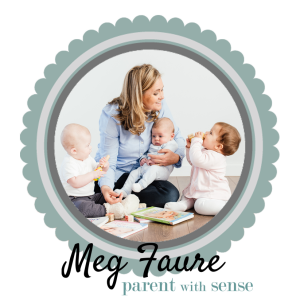There is a wonderful book on postnatal depression (PND) called “When your blessings don’t count” (Linda Lewis, Metz Press) and the first time I heard the title I was blown away by the power of this phrase, because it is such a true description of how one feels when you have PND.
When you have a baby, you are so blessed – everyone tells you how blessed you are and what a blessing this new life will be. Every media advert of a new mom and her baby paints a rosy picture of love and contentment. But what happens when your blessings don’t count – when you can’t see the rosy picture and when you feel so anxious about this new life you can hardly enjoy the simple moments of caring for your baby?
If this sounds familiar, you may well be suffering from baby blues or postnatal depression, otherwise known as postnatal distress. The word distress is a better descriptor for PND than depression because not everyone who has PND experiences depression. Many moms find the overwhelming symptoms are anxiety and fear, rather than sadness and despair.
As many as 30% of moms experience some form of postnatal distress, which encompasses a wide range of conditions, from baby blues to postnatal psychosis.
Baby blues
Baby blues are very mild and short lived. They are usually limited to the first few days after delivery and are strongly influenced by hormonal shifts. You may feel overwhelmed, sad, dependent and vulnerable. You may have difficulty sleeping and experience high levels of anxiety. However these feelings do not linger and within a week or two you love being a mom and look back on the feelings as opposed to having them linger.
Postnatal Psychosis
On the opposite end of the continuum is Postnatal Psychosis. This is the most severe form of postnatal distress. It is rare but exceptionally dangerous as the mom poses a risk to herself and/or her baby. Often the mom is out of touch with the severity of her symptoms. She may hallucinate or have episodes of mania. Psychosis is reason for admission to hospital.
Postnatal depression
Postnatal depression, which is somewhere in the middle of the range, is experienced differently by each person who suffers from it. Some moms feel very sad and have no energy or will to engage with their babies, while others are so anxious that they don’t interact with their little ones out of fear of harming the baby. Many moms feel angry, particularly towards their partners and may resent the world for going on while they are trapped in a tunnel with no light at the end of it.
Talk to someone
No matter what your experience of perinatal distress is, you should chat it through with someone.
After the birth of my first baby, I experienced baby blues for a short period. It would raise its ugly head each evening at about the same time and I would feel myself being sucked into a dark tunnel and feel utter dread for the night ahead and an inability to think about the next day and how I would cope. My saving grace was my mom, who would talk me through it. I would tell her as it was starting and she would help me fall asleep by massaging my feet. Having someone sit with me while I felt so desolate was a great help.
Effects of PND
PND affects not only your ability to carry out daily tasks such as planning meals, getting yourself dressed and caring for your baby, but it also affects the way you interact with your partner and engage with your baby.
Many women feel brittle and angry towards their partners – it feels unfair that he can escape the responsibility of this new life. Of course this is not a logical feeling or thought but then not much is logical when you feel this distressed. In addition, PND can impact on your interaction with your baby. It may prevent you from spontaneously engaging, making eye contact and responding to your baby’s little coo’s. On an emotional level this has negative effects on your baby.
It is these two effects of PND that pose a great risk for your future. Risking your relationship with your partner and not connecting with your new baby can have devastating long-term consequences. It is for this reason that you should seek help as soon as possible.
What to do
If you think you may have PND the first step is to find out if you do. PNDSA (Post Natal Depression Support Association) has an amazing website – www.pndsa.org.za. Here you can take an online test to see if you have PND. This would be the first step in the right direction. From there you can find the right intervention to help you manage your PND.
PND treatment options
If you do have PND, there are a variety of options for treatment:
- Your GP or gynae would be a good place to start – they may prescribe medication or refer you to someone to prescribe medication or counsel you. You will be prescribed an anti depressant that can be used whilst breastfeeding.
- Support groups are a wonderful way to manage PND as not only do you have the opportunity to talk through your feelings and fears but in addition you will find support simply knowing you are not alone.
- Private counseling is also a great option, allowing you to explore reasons for your feelings and heal by talking it through with a professional.
- There are also over the counter natural medications that do make a difference, especially if you have baby blues. But, if your symptoms are more severe it is preferable to use stronger possibly more effective medication.
PND and your family
When one part of a family is hurting or damaged, it may be hard to see the effects on the others. New research highlights the effect of PND on men and we are starting to acknowledge that dads may suffer from PND too. The life change and weight of responsibility affects men too.
Moms and dads, those with baby blues or more severe forms of PND should seek help. This is not a condition to be ashamed of – it’s common and can be treated.
Ref: Faure M & Richardson A Baby Sense 2010 Metz Press ◘ Lewis L When your blessings don’t count 2011 Metz Press
About the Author: Meg Faure is the co-author of the best selling Baby Sense and other ‘Sense-series books’. An Occupational Therapist, Meg has a passion for keeping little ones calm, sleeping well and developing optimally. Meg founded the Baby Sense company, lectures internationally and is a journalist in the field of baby care. Parent With Sense: Meg is active on various social media platforms. Like her Facebook Page (link to: https://www.facebook.com/MegFaureOfficial ) Follow @MegFaure on Twitter (link to: https://twitter.com/megfaure) or Visit her website at www.megfaure.com
Latest posts by Contributor (see all)
- Top baby weaning tips - September 25, 2014
- The future of ultrasound: Colour photos and 4D imagery - September 25, 2014
- First-ever home conception device: The Stork - September 25, 2014
-
No Comments" href="https://all4baby.co.za/babies-6-12-months/2105/baby-wearing-safety-tips-need-know/">

The baby wearing safety tips you need to know
-
No Comments" href="https://all4baby.co.za/birth/labour-delivery/2071/aromatherapy-labour-7-essential-oils-will-help-ease-pain/">

Aromatherapy in labour: 7 essential oils that will ease the pain
-
No Comments" href="https://all4baby.co.za/newborns-0-6-months/newborn-basics/2064/womb-world-secrets-babys-new-life/">

Womb to world: The secrets of your baby’s new life
-
No Comments" href="https://all4baby.co.za/uncategorized/2044/new-mom-lesson-sleep-stake-nothing-limits/">

Co-sleeping: When sleep is at stake, nothing is off limits



 Saving...
Saving...